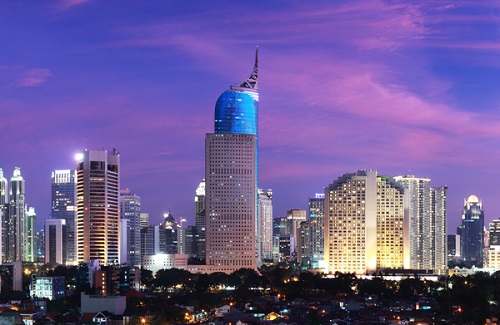If you are resident in Indonesia and are suffering from a chronic condition, you will have little option but to seek medical treatment in the private sector. Expats are not entitled to national health insurance, although you will be able to access the public healthcare system if you pay upfront.However, it is not advisable to rely on the public health system if you have a chronic illness, as it suffers from various restrictions, including a lack of trained personnel, poor patient outcomes, overcrowding and long waiting times. Therefore, most expats take out international health insurance.
Experts say that a global epidemiological transition is taking place. The burden of chronic / non-communicable diseases (NCDs) has now overtaken communicable disease. It is estimated that this will cause three-quarters of all deaths globally by 2030. Around 80% of these will occur in low- and middle-income countries.
How does the Indonesian healthcare system work?
Universal health insurance is only available for citizens of Indonesia. It has recently been overhauled, and was launched in 2014 under the Jaminan Kesehatan Nasional (JKN) scheme. It is a two tier, single payer system, and its aim was to provide coverage to all Indonesians by 2019. The scheme now covers over 75% of the population. The national scheme covers both primary and secondary care.

The Indonesian healthcare system and chronic illnesses
Chronic illnesses / non-communicable diseases (NCDs) among the Indonesian population, particularly those of the older generation, are a significant part of the country’s disease burden. Moreover, the incidence of NCDs is rising. Experts say that it can justifiably be described as an epidemic. Indonesia has the second highest rate of smoking in the world. Screening programmes still need to be implemented, for high blood pressure, obesity and other conditions. The government has responded to some extent and has focused on seven strategic areas:
• Regulations
• Surveillance
• Early detection of risk factors
• Information
• Education and communication
• Improvement of case management
• Improvement of community participation and replication of NCD programmes
However, the Indonesian public health system is severely overstretched and lacks sufficiently trained personnel, particularly in rural areas. Many Indonesians have, until the implementation of the JKN, been unable to afford medication, and even now named brands of medication tend to cost much more than the internationally recommended average. This drives people to use generic brands or medicine from roadside stalls, which may be out of date or even fake.
Those who can afford it seek treatment in the private sector, and most expats take out private health insurance to cover them during their stay in the country.
Applying for disability/sickness benefit
If you are employed in the country and are suffering from a chronic condition, you will need to discuss this with your employer. If you need to take sick leave, you will be entitled to 100% of your pay for the first four months. After this, your pay will be reduced by 25% for the next four months. It will then drop to 50% for the next four months. Employers can legally terminate the contract of an employee who has been sick for 12 months, but may not choose to do so.
If you are going to need to take long-term sick leave, you will need a letter from your doctor. Your sick pay will be covered by your employer, not by the Indonesian government.
You may be able to claim if you have suffered an accident at work, but you may find that you are not eligible for any disability benefit payments.
Private cover for chronic illness
If you are planning on moving to Indonesia, it is advisable to ensure that you have private health insurance that covers your particular condition. Some policies will not cover pre-existing conditions, so you may need to discuss this with your insurance provider.
There are also some steps that you can take to safeguard your health while in the country:
• Discuss any country-specific challenges with your GP before you fly
• Make sure you have enough medication to cover your initial stay in Indonesia
• Ask your GP to issue you with a letter stating that you need your specific medication (you may need to have this translated), and check which substances are currently banned in Indonesia, as the country has strict drug policies
• Keep your medication in its packaging
• Ask your travel companion, if applicable, to carry spare supplies of medication for you, in case you become separated from your luggage
• Bring details of any technical equipment you need (such as an insulin pump), in case you need to phone for advice
• Learn some basic phrases in Indonesian relating to your condition
You should also do a little basic research into the climate, as this can affect some chronic conditions, such as asthma. Indonesia has a tropical climate, with two monsoon seasons. It is therefore extremely humid.

When you reach your destination, register with your local GP – this is likely to be in the private sector. You should find it relatively straightforward to find a local private clinic, particularly in major areas, such as Jakarta, and there are a number of specialists in the treatment of NCDs. If you think that you may need to be registered with a specialist, discuss this with your GP or your local clinic/hospital directly.
The Indonesian government is keen to turn Indonesia into a destination for medical tourism. Some of the key private players in the healthcare industry include Siloam Hospitals (part of the Lippo Group), India’s Apollo Group, Omni Group, Mayapada Group, Sinar Mas Group and the Prodia Group, who run diagnostic laboratories.
As of January 2019, Siloam operates 36 state-of-the-art hospitals across the nation, and it is anticipated that this will grow to 50 hospitals by the end of 2020. Private sector spending currently amounts to around 37.58% of the total healthcare expenditure, and this is also expected to increase as we move into the 2020s.

